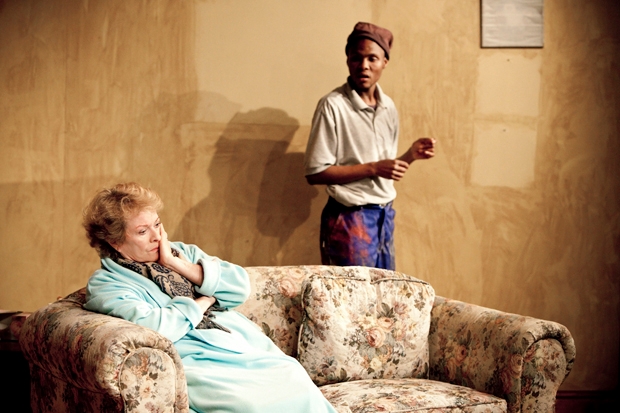What Dame Janet may have meant was this. Theatre is gossip ceremonially presented. And the dramatic structures devised by the Athenians in the 5th century BC raised the form to such a pitch of excellence that the offspring cultures of Ancient Greece acquired a head start that has never been relinquished.
A harmless footnote. But her timing was unlucky. A day earlier the head of Arts Council England, Peter Bazalgette, ordered the 670 arts bodies he supports to get their skates on and make a bigger push for ‘diversity’.
He announced a ‘Creative Case for Diversity’ which ‘demands that our arts make progress in reflecting the nature of our communities,’ and ‘giving a voice to everyone’.
The Arts Council, of course, is not an artistic organisation. It distributes bribes. And as a vassal of the state, it unconsciously mimics its political masters who have no faith in the people. Politicians prefer the intoxicating dishonesties of admen and marketing gurus who urge them to shrink and particularise their product and make it attractive to swing voters in key marginals: the Don’t Knows and the Don’t Cares. Art has the opposite aim. It strives for the universal. And the best way to embrace a large audience is to perform top quality work to the highest possible standards.
The Bazalgette bureaucracy, like the political elite, is alarmed by indifference and wants to convert apathy to fanaticism. It chooses very weird methods to do so. This new initiative characterises the public as narrow-minded, fearful of novelty, and incapable of intellectual tourism. The assumption appears to be that only New Yorkers can appreciate Arthur Miller, that PG Wodehouse’s sole readership is a blazered tribe of lisping clots from the Home Counties, and that you have to be a dead Russian land-owner to find any meaning in Chekov.
Bazalgette also believes that artistic talent comes second to lineage. He makes such a fetish of genealogy that he would be the ideal candidate to lead the College of Heralds when its captainship next falls vacant. At concerts, he admits, he ignores the performance and scrutinises the audience, carefully noting its ethnic composition.
These Darwinian outings seem to have inspired this week’s decision to favour parentage over ability in the nationalised arts. The usual winners will emerge from the auction. Theatrical producers with well-developed political antennae will have no difficulty goosing the Arts Council’s love-buttons and cashing in on whatever treats are being offered. The main victims will be the swindled audiences and the artists hired as mascots to proclaim the state’s high moral standards. A policy that places ancestry over ability will create a rash of second-rate performers delivering lousy art in empty venues. The Bazalgette formula guarantees that most, or all, of these embarrassments will be the work of ethnic minorities.
A strange way to boost their prestige and advance their careers. And big thanks to Dame Janet whose chance remark has dragged this cuckoo policy into the light of day.







Comments